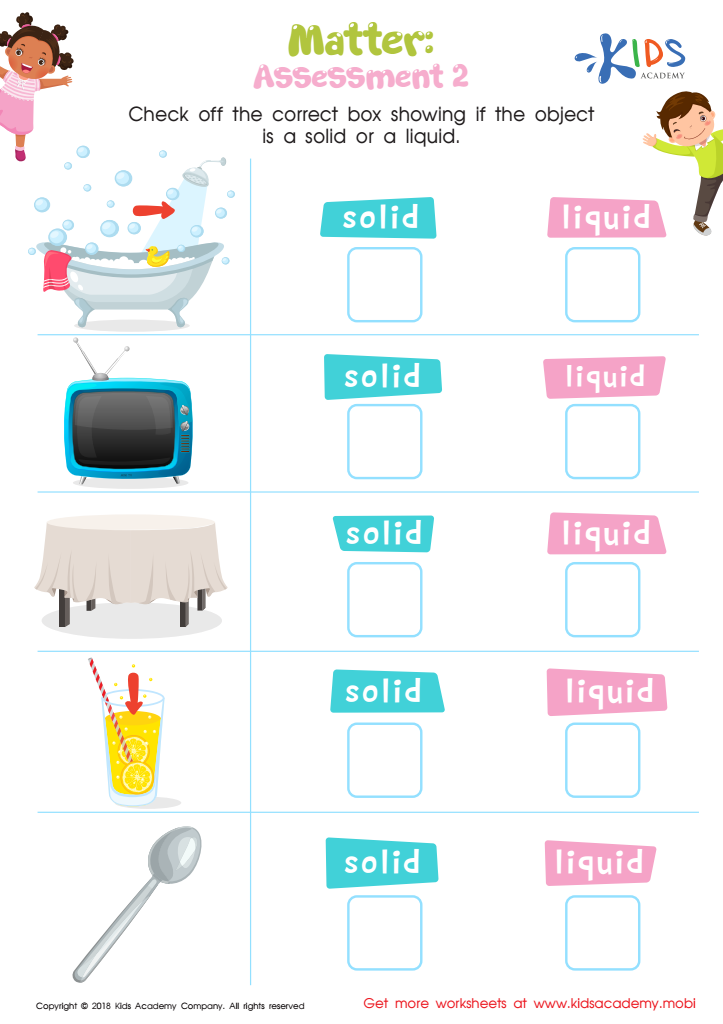Normal Science Worksheets Activities With Answers for Ages 4-8
10 filtered results
-
From - To
Explore the engaging world of science with our "Normal Science Worksheets Activities with Answers for Ages 4-8"! Designed to inspire curiosity and learning, these worksheets cover essential science concepts in a fun and interactive way. Each activity encourages young learners to explore their environment, discover basic scientific principles, and develop critical thinking skills. With clearly provided answers, teachers and parents can easily guide children through each worksheet, fostering a supportive learning atmosphere. Suitable for classrooms or home schooling environments, our resources will help your child develop a lifelong love for science while mastering key concepts in an enjoyable manner!


Matter: Assessment 1 Worksheet


Force and Interactions: Assessment 1 Worksheet


Space: Assessment 1 Worksheet


Ecosystems: Assessment 1 Worksheet


Light and Sound: Assessment 2 Worksheet


Animals and Plants: Assessment 2 Worksheet


Matter: Assessment 2 Worksheet


Ecosystems: Assessment 2 Worksheet


Space: Assessment 2 Worksheet


Animals and Plants: Assessment 1 Worksheet
Parents and teachers should prioritize Normal Science Activities for ages 4-8 because these activities lay the foundation for a child’s understanding of the world. During this developmental stage, children exhibit intense curiosity, making it an ideal time to introduce scientific concepts in engaging and enjoyable ways. Normal Science Activities promote critical thinking, problem-solving, and observation skills, which follow them throughout their academic journey and beyond.
Engaging in science activities sparks creativity and imagination, allowing children to explore hypotheses, conduct experiments, and understand cause-and-effect relationships. This hands-on learning approach fosters a love of learning, encouraging lifelong curiosity and inquiry.
Moreover, science activities enhance fine motor skills, language development, and social interaction when conducted in groups. They often incorporate fun, educational elements like storytelling or art, making complex ideas accessible and relatable to young learners.
Furthermore, involving parents in these activities strengthens the family bond and underscores the importance of learning, showing children that education is a shared value. By focusing on Normal Science Activities, parents and teachers not only support academic achievement but also inspire the next generation of innovators and thinkers. In sum, nurturing scientific exploration in early childhood is essential for holistic development and future success.

 Assign to My Students
Assign to My Students
















